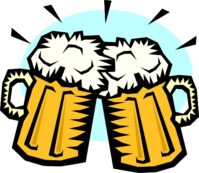Focusing on mental health may be an ambiguous idea and it can be very easy to put aside. Mental health is not as clear-cut as physical health, and it is not necessarily a tangible thing that you can see. For this reason, it may be helpful to think of mental health in the physical sense.
For example, if you stress too much and do not take time for relaxation, then physical inflammation will result in the brain. The brain, of course, is a physical organ. Inflammation is not good, especially over long periods of time. Inflammation in the brain leads to many issues including reduction in cognitive factors like memory and processing speed. So if you think, ‘meh! I don’t need to spend time on mental health, I am a stress-eating machine.’ Remember that too much stress has physical, negative implications, many of which you cannot see and can creep up overtime.
It may make more sense to people to eat healthy because that is a very tangible idea to digest (no pun intended), but it is just as crucial to make time to play, laugh, and relax. If you do not, inflammation will ensue. Not spending time on mental health is equivalent to having a diet based on sugary, floury, trans-fatty, processed foods and not exercising. Seeing the results of poor physical health (not exercising or eating right) is obvious because you clearly see the issue in the mirror, and you feel the issue in terms of your energy levels and focus.
Seeing the affects of poor mental health can be much more vague – you can’t see the cloudiness or deterioration of the mind when you look in the mirror. While your physical diet should consist of whole, natural, organic foods – your mental diet should consist of mindfulness, community, playfulness, laughter, gratitude and service.
You consume your mental diet by how you spend your time, who you spend it with, and what enters through your ears and eyeballs.
Unfortunately, this is what the diet of many looks like:
- Physical diet: Sugar, flour, processed, packaged, additives, preservatives, artificial foods, over-caffeination, and dehydration.
- Mental diet: Instagram, TikTok, Twitter, Facebook, news, negative feedback, unproductive criticisms, advertising, advertising, advertising.
Make sure you have a healthy mental and physical diet.

